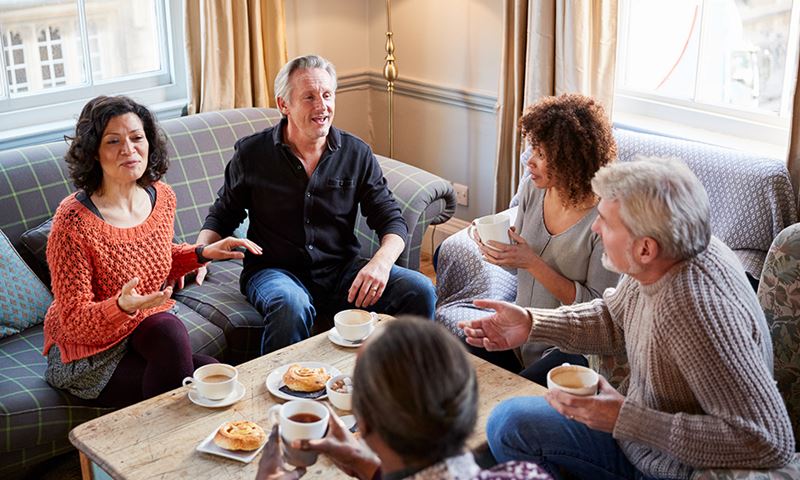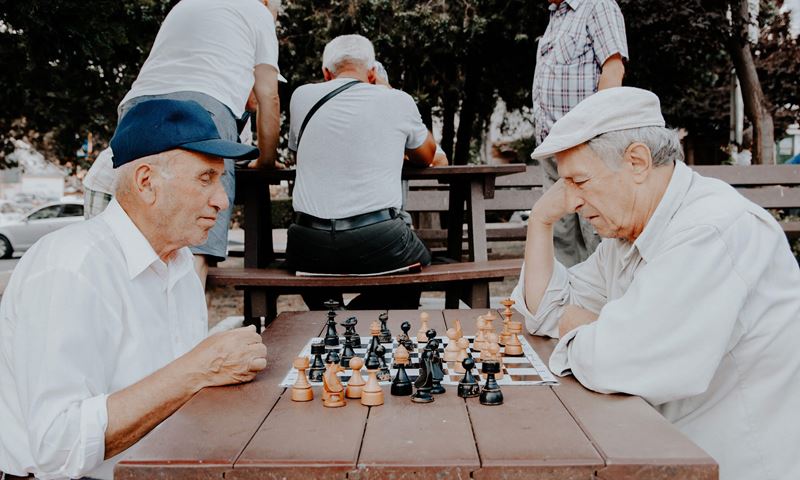Published 30 May 2022
It’s often said that the older we get, the more difficult it can be to make friends.
Sahra Cook, Counsellor and Life Coach, shares practical advice on how to make new friends and avoid loneliness.
Did you know that one in four Australian adults report that they are lonely?
Loneliness is something that people have felt more over the past two years. The COVID-19 pandemic and subsequent lockdowns brought many challenges, isolation and loneliness being at the top of the list. Normal social connections were lost and the ability to connect with people in the community was put on hold.
Fortunately, most things have now returned to normal (well, almost). Schools and businesses are open, people are heading back to the office and leisure activities have resumed. Yet, loneliness is still experienced by many in our community and has become a global concern, because of how it influences health and wellbeing.
Who is most at risk of loneliness?
Research by The Australian Institute of Health and Welfare found that loneliness can impact people at any stage in their life, but that it is more prevalent for Australians aged between 18-24 years old and those aged between 56-65 years old.
The data highlights how life transitions can impact social connections and opportunities for social engagement. Things such as transitioning from an education setting into a work setting, transitioning in or out of a relationship, changes in family dynamics and housing, shifting jobs or working remotely, as well as retirement can all contribute to social isolation and increase the likelihood of people experiencing the effects of loneliness.
Being alone versus. being lonely
When speaking about loneliness it is important to differentiate between ‘being alone’ and ‘feeling lonely’. Many people enjoy spending time alone and do not report feelings of loneliness, whilst others can feel lonely even though they are in the company of others. One of the main reasons this occurs is due to a lack of meaningful, quality connections with others. It’s a case of quality over quantity.
Psychological and mental effects of loneliness can include anxiety, sleep problems, low self-worth, decreased concentration and motivation. People often report that loneliness makes them feel isolated, disengaged, and increases their feelings of self-doubt.
Social connection is key
There are many benefits to having quality social connections and making friends. Feeling socially connected has been shown to improve mood and mental health, decrease symptoms of anxiety and depression, as well as strengthen the immune system. Friendships and connectedness have also been proven to lower stress and improve the functioning of the nervous system, leading to better mental and physical health.
How to make new connections
The good news is there are many positive steps people can take to meet new people and foster new positive connections and friendships. These include:
- Volunteering - find a local cause that you're interested in and volunteer your time.
- Find a hobby - sign up for a sport, art, cooking, sewing, gardening, or dance class or group.
- Exercise - something as simple as going for a walk could lead to you to meeting people in your community. Or joining a local gym or exercise class could lead to meeting like-minded people.
- Say yes! If people invite you out to a social activity go along even if it’s not completely ‘your thing’. You never know, you might enjoy yourself – and if you don’t then you’ve only lost a few hours of your time.
Remember - nothing ventured, nothing gained. If you try one of the ideas above and you don’t enjoy yourself – that’s ok! Celebrate each small step, it’s more than you did the day before. Just because one idea didn’t work doesn’t mean the next one won’t.
Help is there if you need it
If you’ve been dealing with feelings of loneliness and you’re feeling stuck with how to branch out and connect with others, one of the most powerful things you can do is seek help.
Try chatting with a trusted family member, speak to your GP, or book in with a therapist for support. Therapy and support programs can provide a safe space to feel heard and understood whilst providing practical tools to help you on your journey.
There are also programs and phone lines such as:
- Ending Loneliness
- Listening Ear: (02) 9477 6777
For crisis support:
- Beyond Blue: 1300 22 4636
- Life Line: 13 11 14



